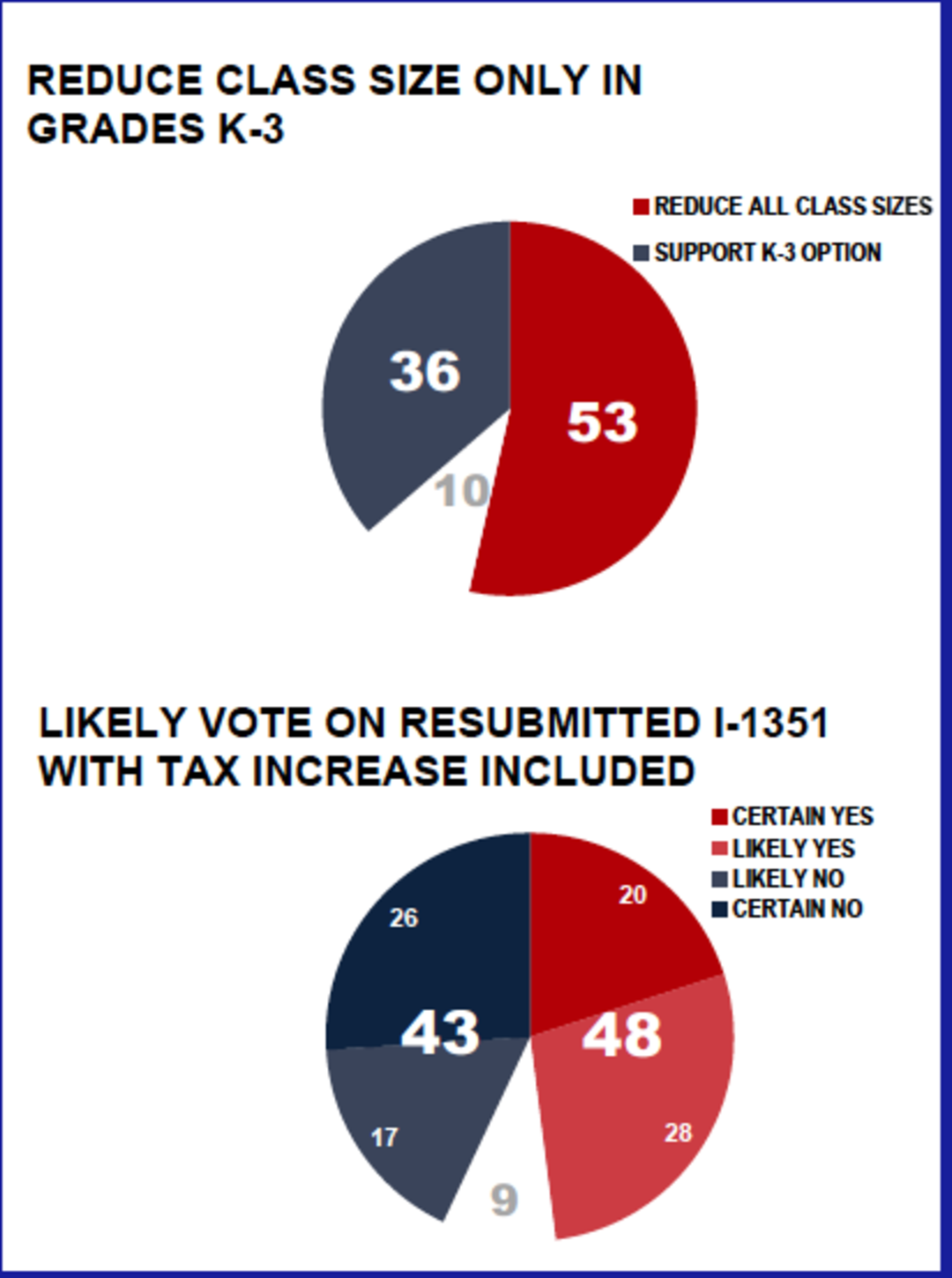Voters Don't Like Legislature's Decision to Ignore Class-Size Initiative

Caffeinated News
1. Veteran state senator Jeanne Kohl-Welles (D-36, Ballard) said on Facebook last night that she's running for King County council member Larry Phillips's open seat.
"I'm very excited and plan to run a high-powered, principled, professional, personalized, and fun campaign," she wrote.
Phillips, a 24-year incumbent on the council, announced his retirement last week.
Kohl-Welles, who's been focusing on marijuana regulations lately, has a long track record on health care and civil rights issues—and as one of the senate's most consistent liberals, she has a 93 percent voting record from the Washington State Labor Council.
Kohl-Welles's open senate seat is likely to create an election-year scrimmage in the 36th legislative district. Her open senate seat is likely to create an election-year scrimmage in the 36th legislative district—Ballard, Fremont, Magnolia, Queen Anne—where the the most recent vacancy (retiring state representative Mary Lou Dickerson's open seat in 2012) led to a seven-candidate pileup. Former port commissioner, now state representative Gael Tarleton, eventually won over progressive activist Noel Frame.
2. Remember the $15 billion Republican senate transportation package, the 11.7 cent gas tax proposal with the "poison pill" for environmentalists and governor Jay Inslee that ties the (already scarce) multimodal dollars to a provision that says Inslee can't use executive authority to greenlight low carbon fuel standards. (If he does, the GOP says, all the multimodal money automatically turns into roads money.) The Republican package, which also takes about $100 million out of the toxic cleanup account, shifts roughly $1.2 billion out of the general fund by dedicating sales tax on transportation projects to transportation projects only, and—another poison pill—doesn't give Sound Transit enough taxing authority to build out to Everett and Tacoma and still add inner city transit in Seattle, includes about $8 billion for new roads, $1.4 billion for road maintenance, and only about six percent, $750 million, for multimodal projects.
A handful of Democrats (including Seattle state senator Jamie Pedersen), encouraged that a bulk of the GOP was okay with a major gas tax increase, helped pass the the bill out of the senate. They were hopeful that the liberal house would use the starter bill as a basis for negotiations.
I'm hearing that the house version (set to be released early next week) will increase Sound Transit taxing authority from $11 billion to $15 billion (that four billion makes a huge difference) and takes out the anti-low-carbon fuels provision.
3. Remember yesterday, I reported on new Elway polling that found more support for GOP state budgeting tactics than for Democratic proposals. That's certainly true. As pollster Stuart Elway concluded: "Bottom line: these voters would prefer to fund education and balance the budget with existing revenue..."
However, one of the strongest findings—58 percent of voters were "opposed" or found it "unacceptable"—was voters' rejection of cutting state salaries.
On that score, the GOP budget is not in sync with public opinion.
The Republican proposal rejects the state's collective bargaining agreements and as an alternative propose to provide a flat $1,000 wage increase for all workers in each of the fiscal years. The senate budget also eliminates health benefits for the spouses of state employees if they have employer offered benefits, and reduces health benefits for retired workers who receive Medicare.
And for teachers, the house and senate both fund the statutorily-required cost of living increases, per I-732, but the house increases the cost of living increase to match what state employees receive and aligns health benefit coverage with that of state employees.
Ultimately, there is about a $500 million difference between the Democratic and Republican budgets on worker compensation issues. The difference is the single biggest funding gap between the two, according to the lefty Washington State Budget and Policy Center, which has a handy budget breakdown.
4. Speaking of Elway polls. He released another one yesterday as well that found voters "aren't having" the fact that both the Democratic and Republican proposals don't fully fund I-1351, last year's $1.4 billion (when you account for the overlap with the McCleary mandate) smaller class size initiative.
The poll also found that 48 percent of voters (versus 43 percent) would take a second vote on the initiative with a funding source—and 60 percent of those people would vote yes. No specific tax proposal got polled, though.


